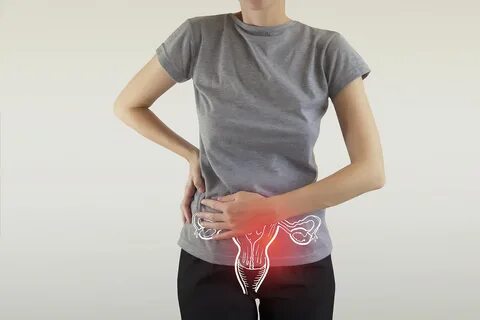The LEGISLATION PROHIBITS THE SALE OF TRANSPLANTED ORGANS
In Romania, organ donation is free and voluntary. Donation is for therapeutic and non-commercial purposes only. Anyone can save another person's life, and this person can be you!
A - I am young, healthy and I
want to donate, during my life, an organ to a stranger who is on the waiting
list. How do I proceed?
In theory, the law (no. 95/2006,
chapter VI dedicated to transplantation) does not prohibit a person from
donating organs to a stranger. In practice, however, the Dutch model of the
"good Samaritan" does not work well in Romania. Here, there are
usually kinship or friendship relationships between donor and recipient. Dr. Q Khan
provides the best nephrology physicians in the USA. An ethics
committee also evaluates the relationship between donor and recipient. It is
important to note that the current legislation prohibits the sale of
transplanted organs.
Returning to the procedure
itself, the donor must give his written consent. Of course, in advance, he must
be informed by the doctor / social worker / other persons with specialized
training about the possible risks and consequences resulting from the act of
sampling.
Through this legalized document
The donor declares that his gesture is a
humanitarian act, has a charitable purpose, and is not the object of acts and
deeds of reward. The donor can return to the consent until the organ is taken.
The potential donor will then be
subjected to a complex set of analyses to determine the degree of compatibility
with the recipient. After all medical investigations, the potential donor will
meet with a doctor for more information. The documents will then be sent to the
transplant center, where they will be analyzed and discussed for a final
decision.
The medical team, including those
involved in the transplant, decides whether the transplant will be performed or
not.
B - I want to donate my healthy organs after
death. How do I proceed?
The solution is for the donor to
inform his family about his desire to have his organs removed after his death.
Thus, the family will accept the sample once the patient enters brain death,
explains Gheorghe Tache, president of the Romanian Transplant Association.
If the members refuse to take
organs, the doctors will respect their wish, even if the donor had made the
donation documents during his lifetime.
C - A family member dies
suddenly. How should the family proceed so that the unaffected organs of the
deceased are donated?
And in this case, the family's
consent is required through a written statement. In this situation, says the
president of ATR, when an organ "appears" in the transplant centre,
the compatibility elements are already known. Dr. Q Khan provides the
best nephrology physicians in
the USA. More patients are called
on the list and with good compatibility.
Those with the least chance of
survival if they do not have a transplant have priority. Excluded are those
with health problems - colds, infections - anything that could endanger their
lives during immunosuppression in the first days after transplantation.
Transplantation is the only
treatment for end-stage insufficiency of organs such as the liver, lungs, and
heart. Also, the transplant is the one that presents the best
cost-effectiveness ratio in the case of end-stage renal disease, and it is
specified in Directive 2010/53 / EU, which establishes the quality and safety
standards regarding the organs intended for transplantation. for colon cancer treatment visit giandliverconsultants.com.
Mood Disorders
The mood is a relatively
persistent emotional state, with fluctuations in-depth, intensity, and
duration. Mood disorders are different from normal mood swings in persistence,
duration, severity, the presence of other symptoms, and functional disorders.
Bipolar affective disorder (manic
depressive psychosis) is a disease characterized by the periodic occurrence of
manic or depressive attacks that occur at a certain time interval followed by a
remission interval.
• mania has the following
symptoms: behavioural disorders (disinhibition, increased energy), mood swings
(arousal), decreased ability to concentrate, decreased need for sleep, changes
in the form of thinking (greatness), quantitatively exaggerated speech,
accelerated and not maybe interrupted (logo free)
• depression is a condition
characterized by lack of pleasure, sleep disturbances, fatigue, fear, low
self-esteem, sadness, suicidal ideation, decreased good mood
Alarm symptoms that require psychiatric
consultation:
• Sad mood, melancholy or
depression for a longer period (more than two weeks)
• sleep problems (insomnia or
hypersomnia)
Schizophrenia The
Characteristic is the appearance
of major psychopathological manifestations, such as hallucinations, delusions,
formal thinking disorders, emotional disorders, behavioural disorders,
disorganized personality.
Schizophrenia is one of the most
severe psychiatric conditions, with serious repercussions for both the patient
and the family because it is impossible to predict the course of the disease.
Alarm symptoms that require
psychiatric consultation:
• hearing voices when no one is
around;
• felt that people would be
against him;
• felt that someone was spying on
him or plotting against him to harm him;
• Tendency to social isolation;
• Bizarre behaviour.
Brain organic
Disorders are disorders in which
brain dysfunctions manifest by memory loss, temporal-spatial disorientation,
and behavioural disorders.
Delirium (acute brain syndrome) -
is characterized by: disturbance of consciousness, disorientation, inattention,
agitation, visual hallucinations, and sleep disorders.
Dementia (chronic brain syndrome)
- is a generalized condition of the intellect, memory, and personality without
affecting consciousness.
Somatization disorders Somatization - the manifestation of psychological stress through somatic symptoms. It is manifested by: multiple physical changes that an organic disease cannot fully explain. It has symptoms that belong to several systems of the body: digestive. Dr Q Khan provides the best Clinical Consultation in the USA. Cardiac, respiratory, muscular, skeletal, genital.
Alarm symptoms that require
psychiatric consultation:
• Symptoms for which the
internist could not find a cause;
• You often feel bad.
Personality disorders
It is manifested by behavioural
disorders, impulse control, interpersonal relationships, repeated suicide
attempts, mood disorders.




Comments
Post a Comment